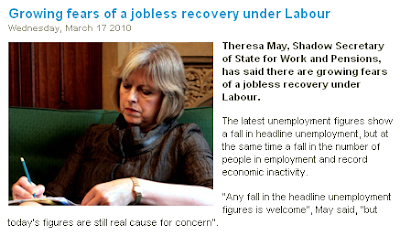Yesterday a booklet came through the post titled "Election addresses by candidates for Mayor of Lewisham".
The election address by Conservative candidate Simon Nundy says: "Only the Conservatives can stop Labour on May 6th." (From context it is clear that he is referring to the mayoral election, not the general election.)
The election address by Liberal Democrat candidate Chris Maines says: "At the last Mayoral election, it was a close finish between the Lib Dems and Labour. This time, the Lib Dems are set to win."
So - only the Conservatives can stop Labour, but the Lib Dems are set to win? How does that work?
I feel strongly that political parties shouldn't be allowed to make statements such as 'only party X can stop party Y here' or, in effect, 'a vote for party Z is a wasted vote'. Such statements only serve to reinforce the status quo - they are self-fulfulling prophecies, not statements of fact.
TikTok Watch
18 hours ago









